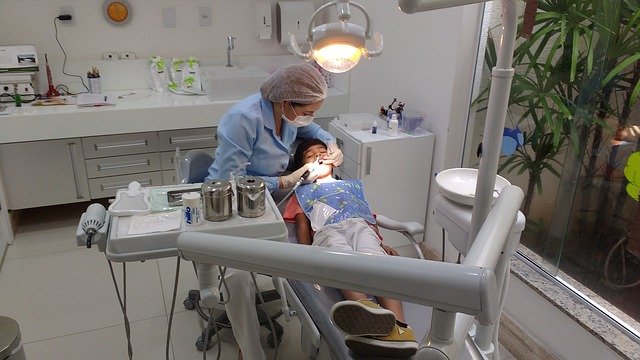Dental Protection raises wellbeing concern as Interim Orders Committee hearings increase by 127%, GDC refers to five-year data
NewsPosted by: Dental Design 7th December 2022

Dental Protection has raised concerns about the rapidly growing number of dental professionals being referred to the Interim Orders Committee (IOC), and the impact on wellbeing.
The IOC considers whether it is necessary to make an interim order restricting a dentist or dental care professional’s registration with the GDC. This happens in cases where the regulator determines such action is needed to protect the public interest, pending the outcome of an inquiry by one of the Practice Committees. The IOC does not investigate any allegations in ongoing cases.
The GDC’s fitness to practise and registration statistical reports show that while in 2019 67 cases were referred to the IOC, this figure more than doubled to 152 in 2021 – a 127% increase. The reports also show that an increasing number of these cases year on year were eventually closed with no further action. A quarter (25%) were closed with no interim sanction in 2019, rising to 39% in 2021.
George Wright, Deputy Dental Director at Dental Protection, said: “Dental Protection supports dental professionals from the moment a GDC complaint is received to its conclusion. We see the impact the investigation process has on the dental professional’s career, reputation and wellbeing. Having to face an IOC hearing during this process adds to this stress and we were concerned to learn that the number of hearings has increased at such an alarming rate in just two years.
“Even more worrying is that the growing proportion of these IOC hearings concluding with no interim sanction suggesting that the cases should not have been referred in the first place. It seems right to question whether the GDC’s processes for identifying suitable cases for referral to an IOC hearing is working as it should.
“Every effort should be made to minimise the impact the fitness to practise process has on the mental health and wellbeing of the professionals involved. This should include ensuring the system which determines the cases that need to be referred to the IOC is robust and is filtering out cases that should be concluded at an earlier stage. We would welcome working with the GDC on this issue.”
GDC Response
GDC Executive Director, Fitness to Practise, John Cullinane, said: “This is a clear example of why selective use of data can be problematic. The number of initial interim order hearings each year is actually stable, and 2019 is not a good baseline to use. Looking at each of the five years to 2021, data which is all publicly available, it is quite clear that 2019 is the outlier. The main reason for this was made clear in the 2020 fitness to practise statistical report (p16) – a process issue in Q4 of 2019 meant that a large number of hearings which should have taken place in 2019 actually took place in 2020.
“It’s also clear that 2019 is the outlier for no order outcomes, which otherwise over the five years to 2021 remain relatively stable. There are a whole host of reasons why a panel might not impose an order. For example, a change in circumstances or mitigations at the point of hearing from when a referral was made could correctly result in a no order. Equally, panels are independent and therefore it’s right that their view will not always align with that of the GDC.
“Interim order committees play a vital public protection role. They are responsible for considering immediate and serious risks to patient safety and public confidence while investigations are ongoing. They do this through an assessment of risk and deciding whether there is a need to suspend or impose conditions on a dental professional’s ability to practise, ahead of a substantive hearing. We are currently consulting on proposed updates to the IOC guidance which aim to ensure consistency in the assessment of – and approach to – risk, provide comprehensive guidance to panel members, and ensure decisions are proportionate and appropriate to the risks posed. I encourage everyone with an interest in this to read the proposals and respond to the consultation before it closes in early February.”
Five-year data: initial interim order hearings
| 2017 | 2018 | 2019 | 2020 | 2021 | |
| No order | 53 (40%) | 67 (43%) | 17 (25%) | 52 (37%) | 60 (39%) |
| Conditions | 37 (28%) | 47 (30%) | 27 (40%) | 47 (33%) | 41 (27%) |
| Suspension | 44 (33%) | 42 (27%) | 23 (34%) | 43 (30%) | 51 (34%) |
| Total | 134 | 156 | 67 | 142 | 152 |
No order: 60
Interim conditions: 41
Interim suspension: 51
No order: 52
Interim conditions: 47
Interim suspension: 43
No order: 17
Interim conditions: 27
Interim suspension: 23
2018 annual report and accounts (page 82)
No order: 67
Interim conditions: 47
Interim suspension: 42
2017 annual report and accounts (page 44)
No order: 53
Interim conditions: 37
Interim suspension: 44
Our consultation on revisions to Guidance for the Interim Orders Committee and the Interim Orders Committee Conditions Bank is available online and closes on 2 February 2023









